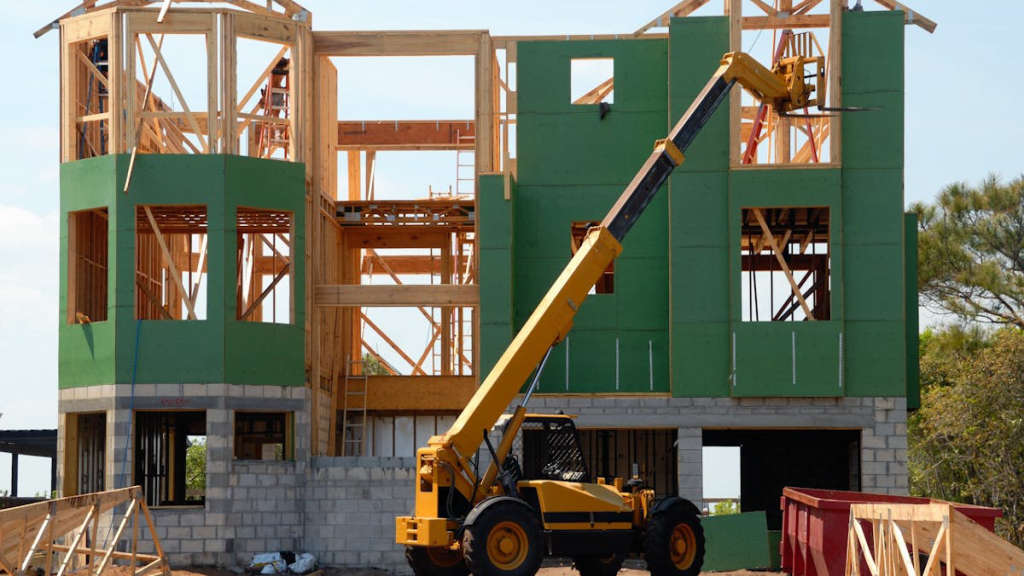In the ever-evolving landscape of construction, understanding the role of Building Materials suppliers is crucial for achieving both quality and innovation. These suppliers are not just vendors; they are the backbone of successful projects. As we delve into this often-overlooked world, we invite you to explore the various dimensions that influence your choices in construction materials. This journey will highlight how the right partnerships can lead to sustainable and cutting-edge solutions.
Main Points
- The importance of reliable Building Materials suppliers.
- Innovative materials transforming the construction industry.
- How to assess quality in building materials.
- The role of sustainability in modern building practices.

Understanding the Role of Tedarikçileri in the Building Materials Supply Chain
In the intricate landscape of the building materials supply chain, the role of tedarikçileri cannot be overstated. They serve as the vital link between manufacturers and end-users, ensuring that quality materials reach construction sites in a timely manner. Their significance goes beyond mere supply; they embody the heart of logistical efficiency and customer satisfaction.
Key Contributions of Tedarikçileri
- Quality Assurance: Tedarikçileri assess and verify the quality of materials, ensuring compliance with industry standards.
- Cost Management: They negotiate prices and terms, helping to control costs and optimize budgets.
- Timely Deliveries: Ensuring materials are delivered on time keeps projects on schedule, enhancing overall productivity.
Yet, the challenges they face are ever-evolving. Market fluctuations, supply chain disruptions, and the increasing demand for sustainable practices complicate their role. For instance, the rise of eco-friendly materials has driven tedarikçileri to adapt, often requiring them to rethink their supply strategies.
In conclusion, while the role of tedarikçileri may seem straightforward, it encompasses a broad spectrum of responsibilities that impact the entire construction process. Their ability to navigate these complexities defines the success of any building project.

Innovative Trends in Building Materials: What Tedarikçileri Are Offering
The construction industry is experiencing a revolutionary shift, embracing sustainable, advanced materials that reshape our understanding of what can be achieved in building. Suppliers are not just providing basic products; they are introducing innovative solutions that cater to ecological concerns while enhancing durability. For instance, the rise of recycled materials, such as reclaimed wood and eco-friendly concrete, signifies a growing commitment to the environment. This transition is both exciting and complex. It raises questions about availability and cost-effectiveness.
Emerging Materials of Interest
New technology has paved the way for innovative building options. Some recent advancements include:
| Material | Features |
|---|---|
| 3D-Printed Concrete | Customizable and cost-efficient |
| Bamboo | Strong, lightweight, and renewable |
In conclusion, as tedarikçileri evolve, they catalyze change within the market. Their offerings reflect a deeper understanding of not only structural needs but also environmental impact. This dual focus makes the future of construction both inspiring and essential.
How to Evaluate Quality and Sustainability in Building Materials Procurement
When considering building materials, understanding the nuances of quality and sustainability is crucial. Begin by assessing the durability of materials. Durable materials withstand the test of time, reducing the need for frequent replacements. However, durability doesn’t merely equate to longevity; it also signifies resilience against environmental factors.
Next, consider the sourcing of materials. Where do they come from? Are they harvested responsibly? Opting for materials that have undergone responsible production processes, such as reclaimed wood or recycled metals, can dramatically diminish environmental impact. However, this is often easier said than done.
Moreover, examining certifications plays a significant role. Look for labels like LEED or FSC which can guide you in making informed decisions. Yet, these certifications can sometimes be confusing, leading to misunderstandings about what they truly represent. Ultimately, investing in quality materials that prioritize sustainability ensures not just structural integrity but also a commitment to environmental stewardship. So, stay informed and choose wisely.
Conclusion
In today’s fast-paced world, the importance of reliable building materials suppliers cannot be overstated. Choosing the right partner can significantly affect the quality and durability of construction projects. As a result, understanding the market and recognizing trustworthy suppliers becomes essential. While many options are available, not all can guarantee the same level of quality and service. Therefore, investing time in researching and establishing strong relationships with building materials suppliers can lead to long-term benefits. Ultimately, a thoughtful selection process not only enhances project outcomes but also fosters trust and collaboration in the industry.
Frequently Asked Questions
What are the essential factors to consider when choosing building materials suppliers?
When selecting building materials suppliers, consider factors such as the quality of materials, pricing, delivery times, reputation, customer service, and availability of sustainable options.
How can I verify the reliability of a building materials supplier?
To verify the reliability of a supplier, check online reviews, ask for client references, assess their quality certifications, and evaluate their responsiveness to inquiries and issues.
What types of building materials are commonly supplied?
Common types of building materials supplied include wood, concrete, steel, insulation materials, roofing materials, drywall, flooring, and various finishes.
